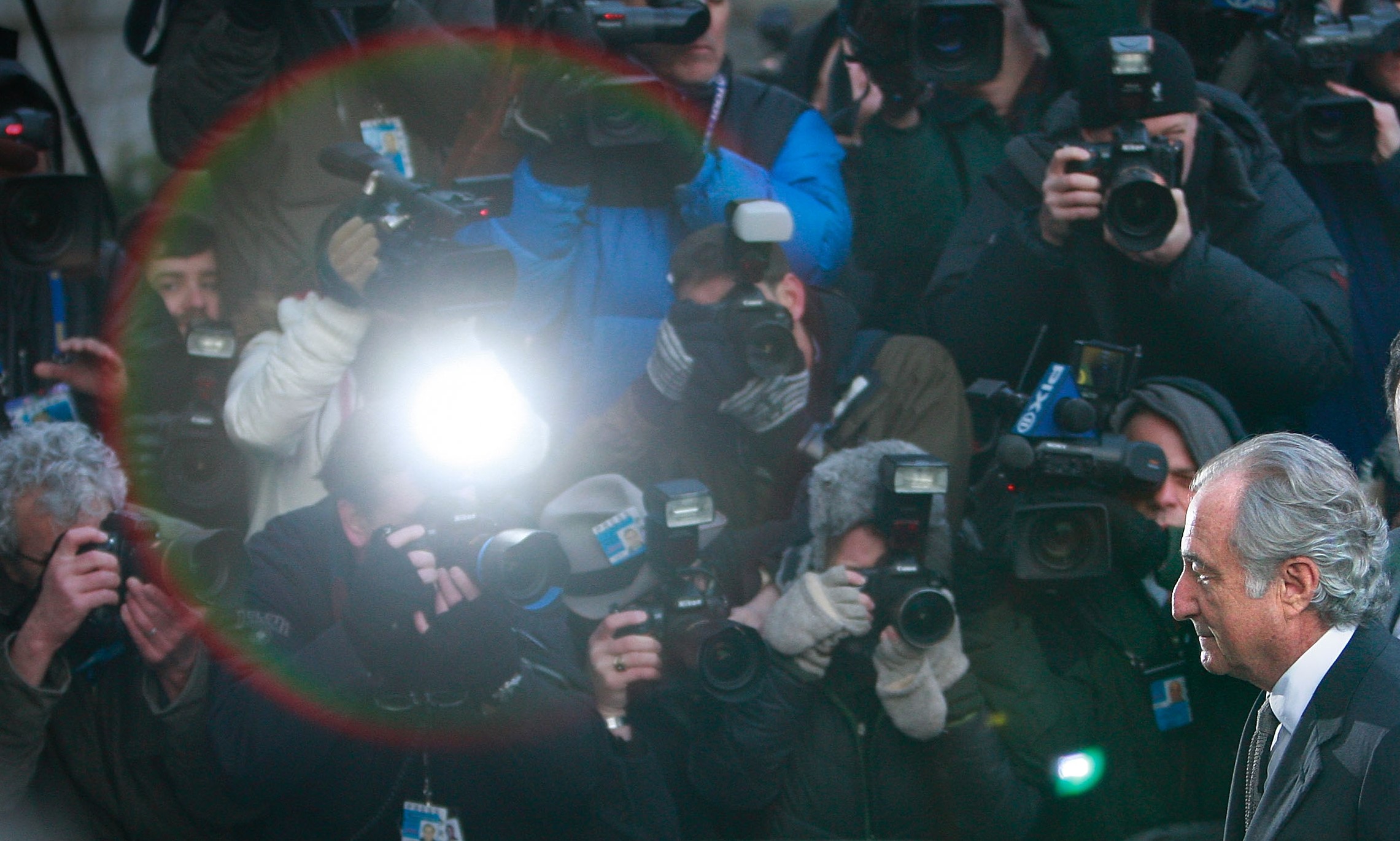
I’d never heard of Bernie Madoff, even though he’d been stealing my family’s money for years.
The first time I heard his name was in December 2008 when I read about the collapse of his giant fund. A man at the very pinnacle of Wall Street – the former chairman of Nasdaq – had been revealed to be a complete fraud, stealing his clients’ money. In many ways it was the crowning moment of the global financial crisis.
One line from the article I read stays with me to this day: “If you know wealthy Jews in New York, you’ll know someone, who knows someone who has been wiped out.”
I had a lot of wealthy New York Jewish friends, and I remember thinking, “My God, I hope I don’t know anyone impacted by this.”
What I didn’t know then was that I was that guy wiped out by Madoff. Two weeks after reading the article, I received a call from my father. He explained to me he’d put all his money – our family money – into two safe, diversified index tracker funds, and now he had been told that he had been lied to, his money had not been diversified across different companies and bonds.
In fact, these had been “feeder funds” for Bernie Madoff. Every penny – money my father had been left by his parents, money he’d saved over 50 years working in the military and aid agencies – was gone.
My father was a career military man – renowned for his sense of humour under fire. He’d been decorated for breaking up an IRA ambush; for saving his platoon by grabbing the controls of a plane when the pilot had a sudden heart attack; for crawling through a minefield in Bosnia to rescue a trapped child.
His friends told me he’d been totally calm when he’d had his arm blown off in combat. So it was a shock to hear his voice cracking, to hear him literally shaken by what had happened. All the certainties of his life had just vanished in an instant. I remember him saying “they told me it was safe”.
Two weeks later, I had another call. My father had gone to a park near his home and shot himself in the head. Bernie Madoff had taken everything from him – even his life.
The veneer of “safety” is something most people don’t realise about Madoff. The popular, smug narrative is it was just rich people losing money, and they were idiots to invest because the returns were impossible to believe.
The returns were impossible, but they weren’t impossibly high, they were impossibly safe – relatively low but endlessly steady. Madoff never lost money, and while that isn’t impossible in high finance, it’s incredibly counterintuitive.
He didn’t just fool people like my father, although the bulk of victims (I’ve met dozens over the years) were like him, people who were wealthy because they’d diligently saved for decades. Madoff also fooled the top people on Wall Street, US regulators – and, most of all, he fooled charities.
A huge percentage of Madoff’s fund was made up of the biggest charities and foundations in America; like my dad they just wanted their money to be safe. People who want security don’t take their money out; they just let it build. That was Madoff’s genius as a fraudster – he targeted people who were going to leave their capital alone, the perfect marks for a Ponzi scheme such as his, where impossible returns accrue only on paper, and are paid out of existing capital.
[see also: The Believers: How America Fell for Bernard Madoff’s $65bn Investment Scam]
Unquestionably, Madoff’s victims were rich, and there’s a limited well of sympathy for rich people losing money. But the consequences were very real – as well as my father, there were other suicides. Jewish philanthropy was devastated. Who knows what good the $10bn Madoff stole from foundations such as Holocaust survivor and political activist Elie Wiesel’s Foundation for Humanity could have done?
People lost their family homes; their marriages crumbled under the pressure; businesses failed and thousands of people lost jobs. And especially in the US, retired people lost access to healthcare as their money vanished.
One victim I met had run a successful pest control business in LA, and his 50 years killing cockroaches and rats had left him with about $700,000 to invest. It had all gone into Madoff. At 91 years old, he was working in a supermarket because that gave him health coverage – without it, his wife would be turned out of her nursing home.
That’s the real damage white-collar crime does. People think it’s just ink on a page vanishing, but every fraud wrecks lives.
Unlike many white-collar criminals, Bernie Madoff ultimately paid for his crimes. He got a 150-year jail sentence, and died in prison. Worst of all, he never reconciled with his sons – one, like my father, took his own life, and the other died of cancer. Outliving your children and dying alone in jail is a fate I wouldn’t wish on anyone.
Perhaps the life Bernie Madoff ruined the most was ultimately his own.
In the UK and Ireland, Samaritans can be contacted on 116 123 or email jo@samaritans.org or jo@samaritans.ie. International helplines can be found at www.befrienders.org.





